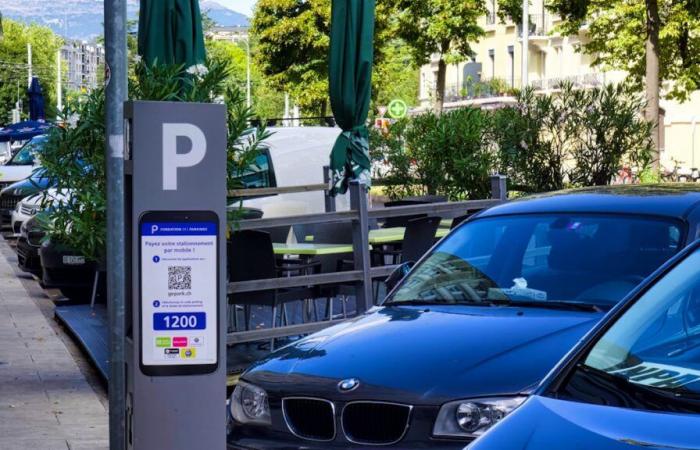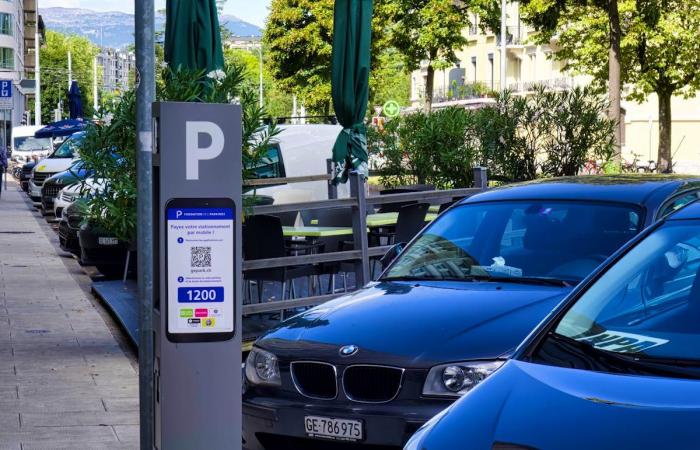In Geneva, there remain around 20,000 parking spaces accessible to individual vehicles. This figure could fall by half by 2040.
Getty Images
It’s a nagging phenomenon for those who go around in circles trying to find where to park in our cities. Individual parking spaces disappear over the years, a street here, a space there… The “Tages-Anzeiger” has collected data in this area for the cities of Zurich, Geneva, Lausanne, Basel and Bern. Between 2015 and 2023, these five large cities lost more than 11,000 places.
Zurich has cut 3,220, Geneva 3,067, Lausanne 2,511, Basel 1,467 and Bern 1,302. In percentage terms, the largest reductions are in Geneva (-13.3%) and Lausanne (-11.4%). In Lausanne, after the 2,511 places lost, there are still 19,447 places left.
Another 10,000 in Zurich…
Despite this, in Zurich, there are still more than 45,000 parking spaces. In ten years, they have decreased by 6.6%. But “the dismantling is only just beginning,” notes the “Tages-Anzeiger”: “City dwellers are less and less likely to own a car and the motorization rate of the population is decreasing. Transport policy is shaped accordingly. Zurich, for example, aims to reduce private motorized transport by 30% by 2040. Around 10,000 places are expected to disappear.
… and 12,000 in Geneva
In Geneva, there are still 20,000 public parking spaces, but the city still wants to reduce them by more than half: 12,000 should disappear by 2040! This is what appears in any case, for the moment, in the city’s municipal master plan.
A dissuasive lever
For Vincent Kaufmann, director of the urban sociology laboratory at EPFL, this development reflects the decline in motorization in cities. “So that external road users are not tempted to come to town by car,” he explains, “it is important to reduce the number of available parking spaces accordingly.” For him, it is a “strong, effective and relevant lever to support a policy, which aims to encourage the use of means of transport other than the car in daily life”.
This is an opinion that national councilor Thomas Hurter (UDC/SH), president of the Swiss Automobile Club (ACS), does not share: “The drop in the level of motorization within the city’s population is precisely a consequence lack of parking possibilities. (…) Companies, but also city dwellers and non-residents, who visit the city for professional reasons or for leisure, count on sufficient parking spaces. For him, the shortage of places causes more traffic due precisely to the search for places.
In small towns too
Resistance is being organized in Zurich, where an initiative has been launched by citizens to freeze the number of public parking spaces at the level of January 1, 2025.
The “Tages-Anzeiger” notes that these five largest cities are not the only ones to practice this policy. In the smallest, the authorities tend to eliminate places, primarily in the center. In St. Gallen, for example, 200 public parking spaces have disappeared since 2015.







